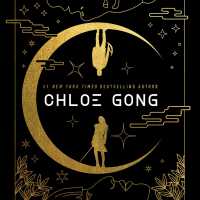YA Weekend Audio: Daughter of Sparta by Claire M. Andrews

I received a review copy from the publisher. This does not affect the contents of my review and all opinions are my own.
 Daughter of Sparta by Claire M. Andrews
Daughter of Sparta by Claire M. Andrews
Mogsy’s Rating (Overall): 3.5 of 5 stars
Genre: Fantasy, Young Adult
Series: Book 1 of Daughter of Sparta
Publisher: Hachette Audio (June 8, 2021)
Length: 11 hours 53 minutes
Author Information: Website | Twitter
Narrator: Brittany Pressley
If you’re a fan of YA fiction and Greek myths, then you’re in luck. Daughter of Sparta by Claire M. Andrews is a reimagining of the tale of Daphne and Apollo, taking readers on an adventure which puts them up close and personal with some of Greek mythology’s most famous legends and figures, including the Minotaur and the labyrinth, the riddles of the Sphinx, Hippolyta of the Amazons, and many, many more.
The novel begins with an introduction to Daphne Diodorus, our seventeen-year-old protagonist who has always felt like an outsider. Despite being raised Spartan, society has never ceased to remind her that she and her brothers were adopted, even if it was by one the most respected families of Sparta. As a result, even though Daphne had been trained from a young age to be a warrior, she finds she still needs to fight harder to constantly prove her worth, not only because of her blood but also because of her sex.
Then came the day of the games, in which each family must put forth a young man to compete in a race to win the favor of the gods and blessings for their village. After her brother Pyrrhus is a n0-show, Daphne is forced to step up to take his place in order to uphold her adoptive parents’ honor. But during the race, she has an encounter in the forest with the goddess Artemis who tells her that Mount Olympus is in danger. Nine powerful items have been stolen from the gods, weakening the powers of the pantheon. Now Artemis wants Daphne to help them take back what rightfully belongs to them—or else. With horror, our protagonist next discovers what had really happened to Pyrrhus, who had been taken captive by Artemis and turned into a stag. To further ensure Daphne’s obedience, the goddess of the hunt also casts upon the girl a magical binding curse which would kill her if she were to fail in her task.
And finally, Artemis has arranged for her twin Apollo to accompany Daphne, to keep her in line as well as to help speed things along. Not unlike her sister, Apollo has his own ways of coercion, turning Daphne’s best friend Lykou into a wolf after the young man tries to follow them. Left with no other choice, Daphne sets out on her quest knowing it would be seen as desertion, putting an end to her dreams of ever being accepted. Still, the alternative is that neither Pyrrhus nor Lykou would ever regain their humanity, not to mention if the Olympus falls, so too would the mortal world.
This book moved fast—too fast, in some instances. I have to say, I had a rough time at the beginning, trying to find some connection to Daphne, which proved difficult when there was virtually no breathing room at all to get to know her or learn about her relationships. The introduction to the book suffered from too much telling and not enough showing, and as such we were given few reasons to sympathize with Daphne or care what happens to Pyrrhus or Lykou, for simply declaring their importance to her was not automatically enough to make me believe so. Readers were pretty much shuffled from one action scene to the next with no attempt to develop the setting or characters, to the point it all became one big blur.
Thankfully, the pacing stabilized once Daphne set out with Apollo, and it became rather clear to me that the author had rushed the intro just to get these two together. After that, I began to enjoy myself a lot more, as what came next was essentially a tour through some of Greek mythology’s more well-known stories. These encounters also came at us relentlessly hard and fast, but at the very least, we now had plenty of quieter, more intimate moments where Daphne and Apollo’s feelings for each other were given a chance to grow.
That said, I still wasn’t sure how to feel about their romance. One thing to know is that Andrews took a whole lot of liberties with the original Daphne and Apollo myth, but she did get one thing right—the Greek gods were assholes, and sure enough, there were many instances of their cruelty, jealousies and pettiness in this novel. Suffice to say, I did not feel Apollo was truly deserving of Daphne’s attentions, or that she really needed him at all, especially given the way her character was written, i.e., tough, ferociously independent and free-thinking, too clever by far to be love-struck by any of his bullshit. However, lots of YA go down this path these days, and perhaps the notion of our protagonist taming a wild god and making him change was always going to be inevitable.
My verdict? If you like fantasy inspired by Greek mythology, Daughter of Sparta the book for you. At times, it feels obvious that this novel is a debut, given some of its pacing issues, and there are also moments where the story leans heavily on YA clichés when it doesn’t have to. Still, Claire M. Andrews is to be applauded for doing an impressive job spinning her own take on the original Greek myths and characters, and the action is superb, far outshining the romantic elements—which, in my eyes, is not a bad thing at all.
![]()
![]()












Mmmmm…. The Greek myths would be a point of attraction for me, the plentiful YA tropes, on the other hand, would not 😉 But that’s just me…
Thanks for sharing!
LikeLiked by 1 person
Yeah I felt that way, maybe that’s why this one was such a mixed bag for me!
LikeLiked by 1 person
Hmm, Daphne never wanted his attention so now it is a lovestory?
LikeLike
Exactly! You pretty much nailed what I thought was off about this. She really didn’t need him, shouldn’t have fallen for him,
LikeLike
This sounds decent, but I need a more enthusiastic reaction, meaning 4 stars or higher, to take a chance on YA these days😉
LikeLike
I totally get that, I am so picky about my YA these days!
LikeLike
I planned on reading that one but now …I guess I will but probably not right away!
LikeLike
It wasn’t bad, but yeah I liked it but didn’t love it!
LikeLike
Probably not one I’ll get around to but it’s great knowing it’s out there for the audience who’ll love it.
LikeLike
Yes, there’s definitely an audience for it! Guess I’m not really it, though.
LikeLike
I was interested to see what you thought of this one. I like the sound of it but at the same time I think the YA feel might not work for me.
Lynn 😀
LikeLike
Pingback: Bookshelf Roundup: 06/12/21: Stacking the Shelves & Recent Reads | The BiblioSanctum